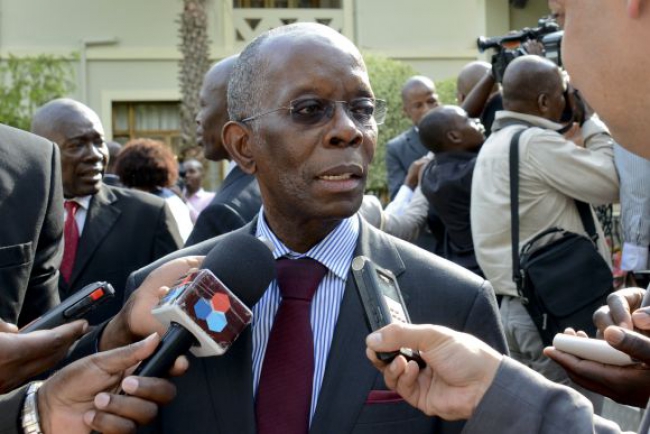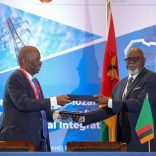Mozambique: Sweden has invested 200 million dollars in electricity projects
Finance minister denies tax exemption claim

File photo / Finance Minister Adriano Maleiane
Mozambican Finance Minister Adriano Maleiane on Wednesday denied that the government has offered 30 year tax exemptions to the American oil and gas company Anadarko, and the Italian energy firm ENI, the two companies heading the consortia that have discovered vast deposits of natural gas in the Rovuma Basin, off the coast of the northern province of Cabo Delgado.
The tax exemption claim has circulated in some of the Mozambican media, and was picked up on Tuesday by the Confederation of Mozambican Business Associations (CTA), the body that claims to speak for Mozambican employers.
Also Read: Employers backtrack on wage freeze
At a Maputo press conference on Tuesday, the CTA Deputy Chairperson, Castigo Nhamane, claimed it was “unjust” for the government to squeeze taxes from small and medium enterprises while offering “30 year tax exemptions” to Anadarko and ENI.
The “30 year tax exemption” claim surfaced again on Wednesday in the country’s parliament, the Assembly of the Republic, when Ivan Mazanga, a deputy from the rebel movement Renamo, claimed that these tax exemptions “are the money we need to take the country out of penury”.
Also Read: Mozambican employers question tax exemptions for multinationals
In response, Maleiane flatly denied that there are any such exemptions. “The laws state categorically what happens”, he said. He was thus gently reminding Mazanga that it is the Assembly which passes those laws, the most recent of which was a government bill amending the taxation regime for mining and petroleum companies which the Assembly passed just a fortnight ago.
There were no exemptions for oil and gas companies on paying corporation tax or personal income tax on the wages of their employees. Indeed, the companies are already paying very large sums in these two taxes.
Also Read: Municipalities to collect IRPS – and keep 10%
Where there is a genuine tax benefit is in the petroleum production tax. But Maleiane pointed out that this month’s amendments eliminated a provision that reduced the tax by 50 per cent when the end product is intended for use in Mozambican industry.
The new law guarantees “fiscal stability” to extractive companies for ten years, not for 30 years – and only to those with a minimum investment of five million dollars, in the case of mining, and of 100 million dollars, in the case of oil and gas. This is very different from the initial tax legislation, of 2014, which granted fiscal stability for a ten year period to any extractive company, regardless of the size of its investment.
As for capital gains tax paid on share transactions in the extractive industry, this has effectively been increased by closing loopholes.
In mid-November, the government accepted an amendment to its bill, proposed by the Assembly’s Legal Affairs Commission, under which capital gains tax is treated “autonomously”. This means that the tax will be charged at the standard rate of 32 per cent, regardless of any other tax liabilities the company may have, and regardless of whether the transaction took place inside or outside Mozambique.
Maleiane said that from now on no company can evade capital gains tax by claiming, for example, that it made a loss over the financial year.












Leave a Reply
Be the First to Comment!
You must be logged in to post a comment.
You must be logged in to post a comment.